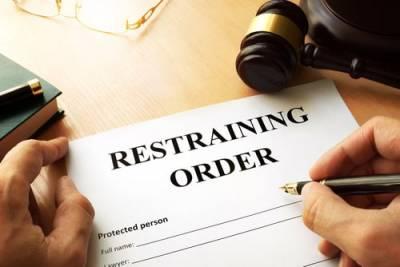How Do Protective Orders Affect Child Custody in a Divorce Case?
 When parents choose to end their marriage through divorce, they may need to address a variety of complex child custody issues. While parents may be able to work together to reach agreements regarding how they will share custody, disagreements over these or other issues can sometimes spiral out of control and turn threatening or violent. In situations involving family violence or where a parent fears for the safety of themselves or their children, a protective order can address these concerns. However, protective orders can also be based on false accusations, or they may be used in an attempt to gain an unfair advantage during divorce. Those who wish to obtain or defend against a protective order should be sure to work with an experienced family law attorney.
When parents choose to end their marriage through divorce, they may need to address a variety of complex child custody issues. While parents may be able to work together to reach agreements regarding how they will share custody, disagreements over these or other issues can sometimes spiral out of control and turn threatening or violent. In situations involving family violence or where a parent fears for the safety of themselves or their children, a protective order can address these concerns. However, protective orders can also be based on false accusations, or they may be used in an attempt to gain an unfair advantage during divorce. Those who wish to obtain or defend against a protective order should be sure to work with an experienced family law attorney.
What Can a Protective Order Do?
If a person has allegedly committed acts of family violence (including physical abuse, sexual abuse, verbal abuse, threats to harm a person, or kidnapping) against their spouse, ex-spouse, dating partner, or children in their household, their current or former partner can file a petition for an emergency protective order in family court. This type of restraining order is known as a temporary ex parte protective order. An emergency protective order will be in effect for 14 days, and a hearing will be held to determine whether a permanent protective order will be necessary.
A protective order can place a number of requirements on the respondent, (the spouse who is accused of committing acts of family violence), as well as the petitioner (the spouse who petitioned the court for protection). Typically, a protective order will require the respondent to stay a certain distance away from the petitioner, their children, and other members of their household, and it may state that the respondent cannot go near certain places such as a home, workplace, school, or daycare center. The respondent will also be prohibited from communicating directly or indirectly with the respondent or other family members in a threatening or harassing manner or engaging in behavior meant to harass, threaten, annoy, or embarrass them.
A protective order may also exclude the respondent from their family home or residence, and it may order the respondent to pay child support to the petitioner. A respondent will be required to surrender any firearms they own or a concealed handgun license, and they may be required to attend programs meant to prevent future acts of family violence. A protective order may also set terms for child custody and visitation, including when and how parents will exchange children and whether supervision will be required during the respondent’s visitation time. Both parties will be required to follow the order’s terms. Violations of a protective order can lead to a person being held in contempt of court, which may result in fines or even imprisonment in jail.
Contact Our Austin, TX Family Law Attorney
Whether you believe that you and your children need protection from an abusive spouse, or you need to defend against a protective order that has been issued against you, Powers Kerr & Rashidi, PLLC can provide you with legal help and representation. We will explain your rights and options, and we will help you determine the steps you can take to address these issues and reach a positive outcome for your divorce. Contact our Austin divorce lawyer today at 512-610-6199.
Source:
https://www.txcourts.gov/media/478290/chapter3.pdf




 512-610-6199
512-610-6199
